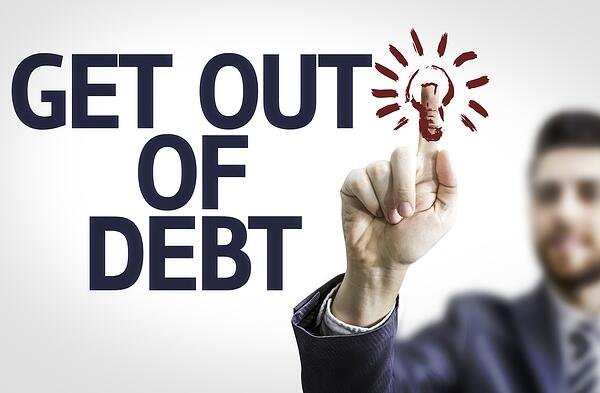Paying off your debt requires a great deal of planning, motivation, and effort. Even though there are tools and resources to help you get out of debt faster, such as the debt snowball method or debt consolidation, you’ll need to keep yourself motivated to get those debts paid off sooner rather than later.
If you’re looking for inspiration, here are some reasons to focus on your finances and get rid of that debt once and for all.
1. Better financial security
When you have a lot of debt, it can be a significant threat to your overall financial security and future savings goals. Debt keeps you from making the most of your dollars since you’ll be using funds to pay off your debts instead of other things, including investing and saving. Once you’re debt-free and have more room in your budget, your financial security will improve.
2. Reduced stress
Paying off debts can be stressful as you worry about how you’re going to make the debt payments and cover your other expenses without going into more debt. Excessive stress can affect your mental health as well as physical health and can lead to migraines, heart attacks, high blood pressure, obesity, and diabetes. Once your debts are paid off, your stress may reduce, relationships may improve, and you’ll likely feel healthier overall.
3. Improved credit score
Too much debt can negatively impact your credit score. If your credit card balances are too high, especially compared to your credit limit, your score could drastically decrease. This also applies to loan balances compared to the original borrowed amount. Once your debt is paid in full, your credit score should improve.
4. Get back to doing things you enjoy without worry
When you’re pinching pennies to ensure you can make your debt payments, you’re not able to spend on other things you enjoy. Not only can this impact your mental health, but it could also lead to more debt if you continue to make purchases. Once your debt is paid off, you’re free to spend your money on discretionary purchases—without worrying about unpaid debts.
5. More disposable income
Not only are your debt payments the amount you borrowed, but they also charge high interest rates that make for higher payments. Much of your income will be spent on these payments, so when you’re able to pay off your debt, you can have a chunk of money you previously didn’t have to put into savings or spend more wisely.
6. Decreased risk
If you’re in debt—and especially if you don’t have an emergency savings fund—loss of a job or another major financial hit can hurt your ability to make payments. This could result in collections agency calls, being sued for nonpayment, having to claim bankruptcy, or having your car, home, or other possessions repossessed. The less debt you have and the more financially secure you are, the less you’ll be impacted by unexpected financial emergencies.
7. Fewer bills
The more money you borrow, the more bills you’ll need to keep track of and pay. Once you’re debt-free, you’ll have fewer bills to stay on top of and manage each month. This helps decrease the chances of you missing a bill or making a late payment, which would mean fees or penalties. Plus, it’s one more thing to cross off your to-do list.
Caitlyn Callahan
Caitlyn is a freelance writer from the Cincinnati area with clients ranging from digital marketing agencies, insurance/finance companies, and healthcare organizations to travel and technology blogs. She loves reading, traveling, and camping—and hanging with her dogs Coco and Hamilton.







